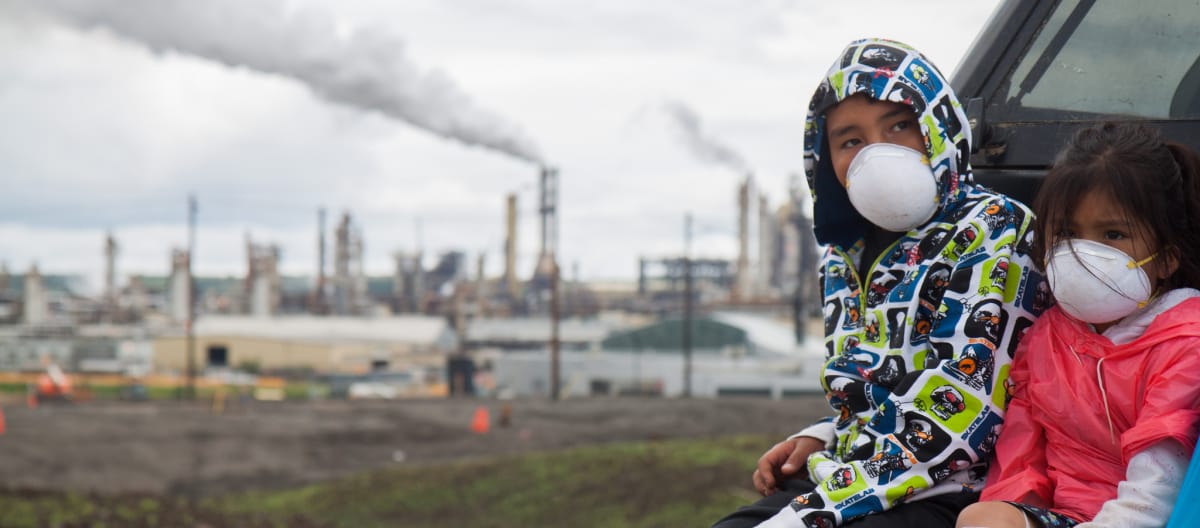Carbon credits – the indulgence trade of the 21st century
Wouldn’t it be great if we could protect the climate without having to cut our emissions? We could drill for oil, travel by air and buy all kinds of environmentally harmful products as if the climate crisis didn’t exist. A plethora of offsetting, compensation and carbon credit schemes say we can – but it’s too good to be true.
How do companies manage to advertise products and services known to be harmful to the climate as “climate-neutral” or even “climate-positive”? Carbon credits and offsets would seem to make it possible.
What are carbon credits and offsets?
The idea behind carbon credits and offsets is strikingly simple: Emissions at location A have no net effect on the climate if they are “offset” at location B. For example, you could offset the carbon emissions you cause by jetting to a weekend getaway at location A by planting a tree at location B. In addition to reforestation, existing forests can also be protected. Offsetting is said to work for just about anything: electronics, cosmetics, clothing, food from outside the region – even crude oil. This zero-sum game is called “net zero” by experts and policymakers.
Fundamental criticisms
The problem is that “net zero” is not real zero. Carbon is still being emitted into the atmosphere, and there is no guarantee that the climate will benefit from actions taken elsewhere, or when the effect will occur.
In July 2023, an analysis by the Rainforest Foundation UK found that four leading forest offset programs “simply do not represent real emissions reductions”. In January 2023, The Guardian and SourceMaterial revealed that 90 percent of certificates intended to offset emissions were worthless for the climate.
Proponents of carbon credits and other offset schemes insist that they are necessary to compensate for “unavoidable emissions”. They are also said to provide much-needed money for forest conservation.
Critics point out that after 15 years of experience and despite billions of euros, offset models have contributed little to climate and forest protection and are often used for greenwashing. Worse still, they harm the climate by delaying real action to reduce emissions. Offset projects can also lead to land conflicts and land grabs, and violate the rights of local and Indigenous communities.
This is also an issue of global justice: People in offset project areas, many of whom live in the global South, produce little emissions themselves and thus contribute little to the climate crisis. However, when offsetting emissions generated in the global North, they often suffer restrictions on their livelihoods, such as being unable to use their ancestral forests as before.
Are there better alternatives?
Yes, there are.
Carbon credits and offset models perpetuate business as usual by distracting from real solutions to protect the climate and forests. Instead, we need to pursue strong climate action – especially by phasing out fossil fuels. These measures must protect biodiversity, be globally equitable, and respect human rights.
Let’s take air travel as an example. Airlines may be banking on your guilty conscience about flying, even though you know the impact it has on the climate, and offer you the option of paying for carbon offset projects. This is a modern form selling indulgences. For a small additional payment, you can make your flight “carbon-neutral” – which is of course an illusion.
You can, however, take personal action to offset emissions that are truly unavoidable. See if you can avoid emissions elsewhere: This may mean reducing or eliminating your consumption of meat and dairy products. You can also avoid products that come from rainforest areas, such as things made from tropical wood. Or, if possible, leave your car at home and ride a bike or take public transportation.
Rainforests are crucial to maintaining the global climate, and a lot of money is needed to preserve them. However, you can donate directly to forest conservation projects without the unnecessary detour of often dubious offset payments. We recommend supporting Rainforest Rescue projects.
Forests are much more than carbon sinks and climate stabilizers, so other sources of funding must be found to protect them. These could include a price on emissions, the redirection of climate-damaging subsidies, and a tax on financial transactions. It is essential that we tackle the root causes of deforestation and forest degradation, including industrial agriculture and cattle ranching, mining, oil projects and logging.
The Guardian and SourceMaterial revealed
The Guardian 2023. Revealed: more than 90% of rainforest carbon offsets by biggest certifier are worthless, analysis shows: https://www.theguardian.com/environment/2023/jan/18/revealed-forest-carbon-offsets-biggest-provider-worthless-verra-aoe
SourceMaterial 2023. The Carbon Con: https://www.source-material.org/vercompanies-carbon-offsetting-claims-inflated-methodologies-flawed/
carbon-neutralDelta Airlines, for example, claims to be carbon-neutral thanks to the purchase of tens of millions of carbon offsets – yet it continues to damage the climate by operating 4,000 flights a day.












